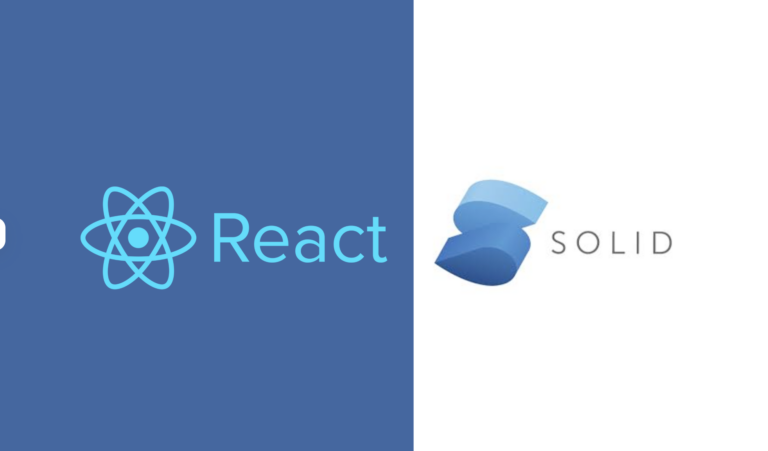Memory leaks are a common issue in React applications, and they can lead to significant performance degradation and poor user experience. In this article, we will discuss what memory leaks are, why they occur in React applications, and how to identify and fix them. We will also provide practical examples of common scenarios where memory leaks occur and show how to prevent them.
1. What Are Memory Leaks?
A memory leak happens when an application allocates memory but fails to release it when it is no longer needed. In JavaScript applications like React, memory leaks occur when objects, data, or DOM nodes are not properly cleaned up, leading to increasing memory consumption over time.
Memory leaks can cause the application to become sluggish and unresponsive. If left unchecked, they can lead to crashes and slow performance, especially on low-memory devices. In React, these leaks are often caused by improper management of resources like event listeners, timers, API calls, and references to DOM elements.
2. Why Do Memory Leaks Occur in React?
React is a declarative, component-based JavaScript library that renders components to the DOM. When a component is mounted, it initializes resources like API calls, event listeners, and timers. When a component unmounts, React expects to clean up these resources automatically. However, if developers forget to clean up after themselves, memory leaks can occur.
Here are some common causes of memory leaks in React applications:
- Stale state updates after a component has unmounted
- Uncleaned event listeners or subscriptions
- Storing large objects or arrays in state
- Unoptimized rendering of components
- Unstable or missing
keyprops in lists - Not handling async operations properly
3. How to Detect Memory Leaks
Detecting memory leaks involves monitoring the application for unusual memory usage patterns. Here are some approaches:
a. Using Chrome DevTools
- Open your application in Chrome.
- Go to the “Performance” tab in DevTools.
- Record the performance while interacting with your app.
- Look for a steady increase in memory usage that does not decrease over time.
b. Heap Snapshots
- Use the “Memory” tab in Chrome DevTools to take heap snapshots.
- Compare snapshots to identify objects that persist in memory unnecessarily.
c. Profiler in React Developer Tools
- Use the React Developer Tools Profiler to identify components that are not unmounting correctly.
d. Third-Party Tools
- Memory Leak Finder Libraries: Tools like
why-did-you-renderorleak-finderhelp detect leaks in React apps. - Monitoring Tools: Tools like Sentry or Datadog can help monitor memory usage over time.
4. How to Fix Memory Leaks
a. Clean Up Subscriptions and Listeners
When using subscriptions, listeners, or timers, ensure that they are cleaned up when components unmount. In functional components, this is typically done using the useEffect cleanup function:
useEffect(() => {
const handleResize = () => console.log(window.innerWidth);
window.addEventListener('resize', handleResize);
// Cleanup
return () => {
window.removeEventListener('resize', handleResize);
};
}, []);
b. Clear Intervals and Timeouts
Ensure that any setInterval or setTimeout calls are cleared:
useEffect(() => {
const intervalId = setInterval(() => {
console.log('Interval running');
}, 1000);
// Cleanup
return () => clearInterval(intervalId);
}, []);
c. Avoid Global Variables
Global variables can hold references that prevent objects from being garbage-collected. Limit their use and set unused variables to null when done.
d. Use React.StrictMode
Enable React.StrictMode in development to identify potential issues in your components, such as side effects that may cause memory leaks.
import React from 'react';
import ReactDOM from 'react-dom';
import App from './App';
ReactDOM.render(
<React.StrictMode>
<App />
</React.StrictMode>,
document.getElementById('root')
);
e. Avoid Inline Functions and Closures
Inline functions in props or closures can create new instances on each render, leading to potential memory issues. Use useCallback to memoize functions:
const handleClick = useCallback(() => {
console.log('Button clicked');
}, []);
f. Optimize React Refs
Avoid over-relying on refs to store data. Use state or context wherever possible.
5. Best Practices for Preventing Memory Leaks
a. Follow Component Lifecycle Guidelines
Understand and implement proper lifecycle management, especially for class components:
- Use
componentWillUnmountfor cleanup. - Avoid state updates in unmounted components.
b. Use Functional Components with Hooks
Functional components with hooks like useEffect simplify lifecycle management and help prevent common pitfalls.
c. Monitor Dependencies in useEffect
Ensure that all dependencies in useEffect are accurate to prevent unintended behavior.
useEffect(() => {
console.log('Dependency changed');
}, [dependency]);
d. Implement Error Boundaries
Use error boundaries to catch and handle errors gracefully, ensuring that memory leaks are not exacerbated by unhandled exceptions.
class ErrorBoundary extends React.Component {
constructor(props) {
super(props);
this.state = { hasError: false };
}
static getDerivedStateFromError(error) {
return { hasError: true };
}
componentDidCatch(error, info) {
console.error(error, info);
}
render() {
if (this.state.hasError) {
return <h1>Something went wrong.</h1>;
}
return this.props.children;
}
}
e. Test for Memory Leaks During Development
Use tools like Chrome DevTools, React Profiler, and heap snapshots during development to identify leaks before deployment.
6. Tools for Detecting and Fixing Memory Leaks
a. Chrome DevTools
- Use the “Performance” and “Memory” tabs to profile memory usage.
- Take and compare heap snapshots.
b. React Developer Tools
- Use the Profiler to analyze component renders and identify unmounted components still in memory.
c. why-did-you-render
- A debugging library to identify unnecessary re-renders in React components.
d. Sentry
- Monitor memory usage in production environments and detect performance bottlenecks.
e. Heap
- A memory profiling tool designed for JavaScript applications.
Conclusion
Memory leaks in React applications can degrade performance and user experience. By understanding the causes and symptoms, employing tools to detect issues, and following best practices, developers can ensure their applications remain efficient and responsive. With a proactive approach, including the use of proper cleanup mechanisms and monitoring tools, memory leaks can be effectively minimized, leading to more robust and maintainable applications.
By applying these techniques and leveraging the tools mentioned, developers can ensure that their React applications remain optimized and deliver a seamless user experience.












Aw, this was a very good post. Finding the time and actual effort
to create a superb article…
I do not even know how I ended up here, but I thought this post
was great. I don’t know who you are but definitely you’re going to a famous blogger if
you aren’t already 😉 Cheers!
Thank you so much for your kind words! 😊
We’re glad you found your way here and enjoyed the post. Your encouragement truly means a lot — it’s support like this that keeps us going! Feel free to explore more content and share your thoughts anytime. Cheers to curious minds and futuristic ideas! 🚀✨
— Team FuturisticGeeks
What you’ve written here feels timeless — like something that will resonate for years to come.
Thank you so much for your kind words! We’re truly honored that the piece resonated with you in such a meaningful way. At FuturisticGeeks, we aim to create content that stands the test of time and continues to spark thought and curiosity. Your support encourages us to keep pushing boundaries. Stay tuned — the future has much more in store! 😊🚀